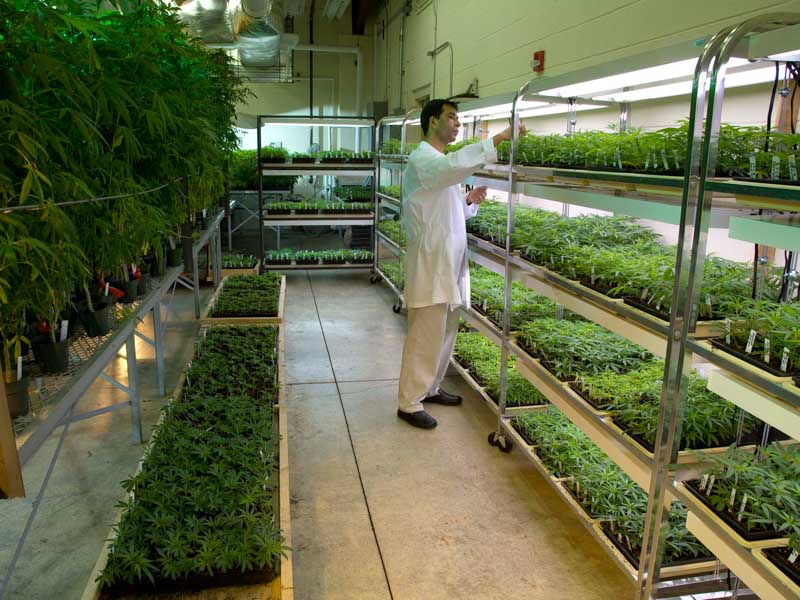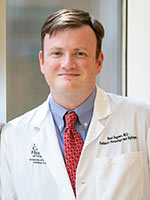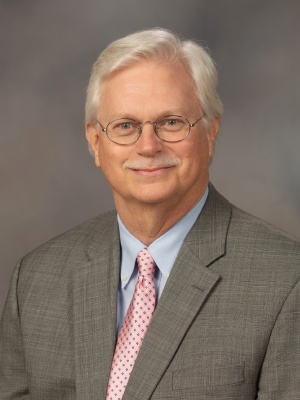Six-month cannabidiol drug trial at UMMC gets one-year extension

Results from a clinical trial of a new marijuana-derived drug to treat seizures in children prompted approval of a one-year extension to the study.
The clinically tested investigational drug product is an oral cannabidiol, CBD for short, derived from marijuana grown at the University of Mississippi School of Pharmacy’s National Center for Natural Products Research. To conduct the trial, required approvals were obtained in 2018 from the Drug Enforcement Agency and the Food and Drug Administration.
The trial, conducted by the University of Mississippi Medical Center and the UM School of Pharmacy, was approved for 10 patients. All patients in the initial trial opted to participate in the extension.

Treatment with the drug, described as “compassionate care for the sickest of the sick” by principal investigator Dr. Brad Ingram was proven to be safe in the trial’s first six months.
“We found no significant safety issues,” said Ingram, UMMC associate professor of pediatric neurology and director of the UMMC Pediatric Comprehensive Epilepsy Program. “We will be changing a few things in the way the trial is conducted. In the first six months of this trial, we were looking at tolerability. Now the trial’s focus will shift to how well patients are responding and whether we are still seeing a positive response in 12 months.”
Those in the trial “are patients whose lives have been devastated by their epilepsy, even up to their abilities to walk, talk, or participate in simple activities of self-care,” Ingram said.
The extract, a Schedule I controlled substance, is prepared from a special type of marijuana that has a high concentration of CBD and a low concentration of THC, the psychotropic element of marijuana.
Results so far have shown promise, Ingram said. “Some of the trial participants are at the status quo, and some have had a really good response to the drug. All of the participants, though, seem to have some positive outcome, such as more pleasant mood or sleeping better.
“Even with patients whose seizure counts are unchanged, parents said their children are happier,” Ingram said. “We had a teenage patient say ‘mom’ to their mother for the first time ever. We had patients whose parents were able to take them to the grocery store for the first time.”
Dr. Richard Summers, UMMC associate vice chancellor for research, said the extension reflects on the initial trial’s results.

“The FDA extension is a next great step forward toward developing this natural product into a therapeutic with the promise of controlling seizures in many patients that have failed conventional treatment,” Summers said. “The allowance of an extension is also a reflection of the great success of our initial trial and the quality of the research operations of the UMMC CBD team. We are hoping to use these efforts as a springboard for other future potential areas of use for this compound.”
Dr. Larry Walker, director emeritus of the NCNPR, hopes the trial extension will lead to the drug becoming available in the future.
Walker was instrumental in planning the study and in arranging to provide the study materials to UMMC through the National Institute on Drug Abuse’s drug supply program, for which NCNPR is the sole supplier of marijuana and cannabis extract.

“We are very happy that the CBD extract trial has been extended for another year,” Walker said. “We’ve been pleased to see how the patients and their families have benefited from the study, and are hopeful that another year will provide a basis to begin a development program of a federally approved cannabis-based botanical drug.”
In the trial, extracts of a marijuana strain grown on the University of Mississippi Oxford campus are being manufactured, packaged and checked to ensure all quality control specifications are met before being transferred to the pharmacy at UMMC’s main campus in Jackson. There, the extract is diluted with pharmaceutical-grade sesame oil to achieve the proper dosage concentration.
Walker said the partnership between NCNPR and UMMC opens the door to progress. “Dr. Mahmoud A. ElSohly’s team at the NCNPR has worked diligently on the product development, manufacturing, regulatory clearances and other hurdles. This promises to be a milestone that could greatly stimulate the national research agenda for developing FDA-approved cannabis-derived drug products.”

The possibility of organizing this clinical trial came about in 2014, when the Mississippi Legislature passed a law allowing the Medical Center to dispense CBD oil for the treatment of epileptic seizures in children.
Sen. Josh Harkins, R-Flowood, who authored the bill, said he’s pleased that the trial has been extended. “Patient safety is the most important thing, and through this study, researchers are taking the proactive, correct approach. Their progress is backed with scientific data and is being made in the most responsible manner. We hope that this will bring help to more patients in the future.”
Learn more about the UMMC Pediatric Comprehensive Epilepsy Program by visiting our website.


